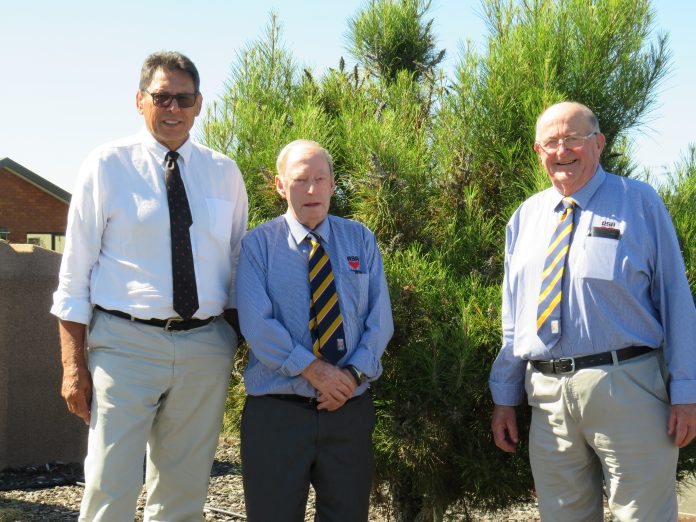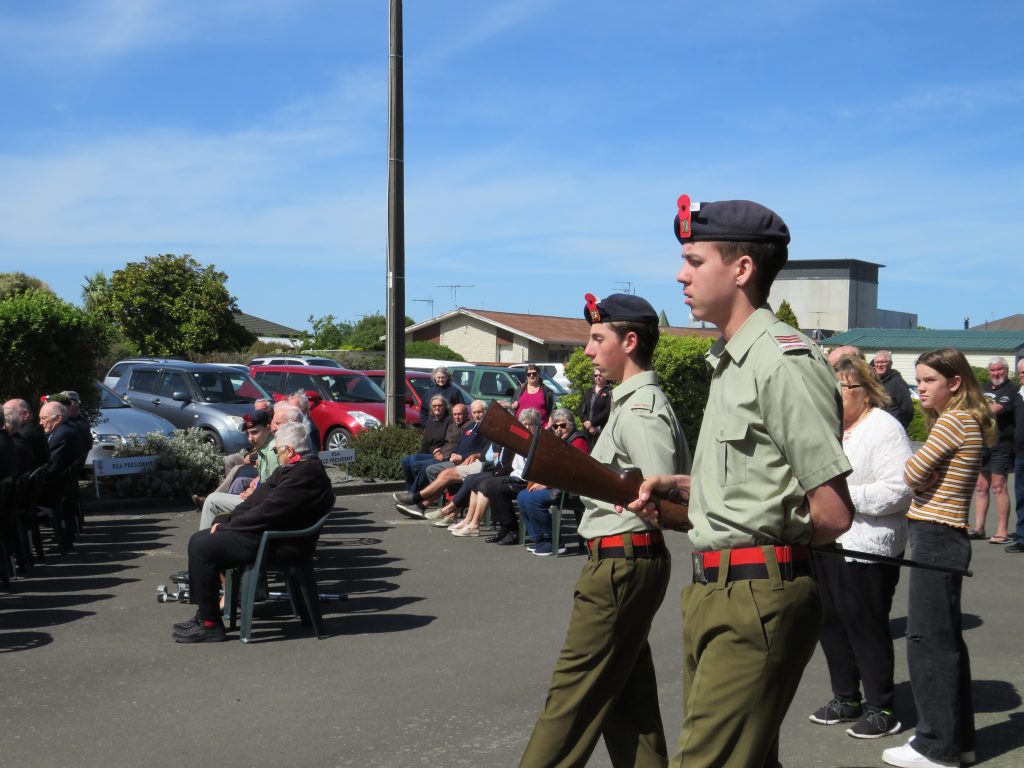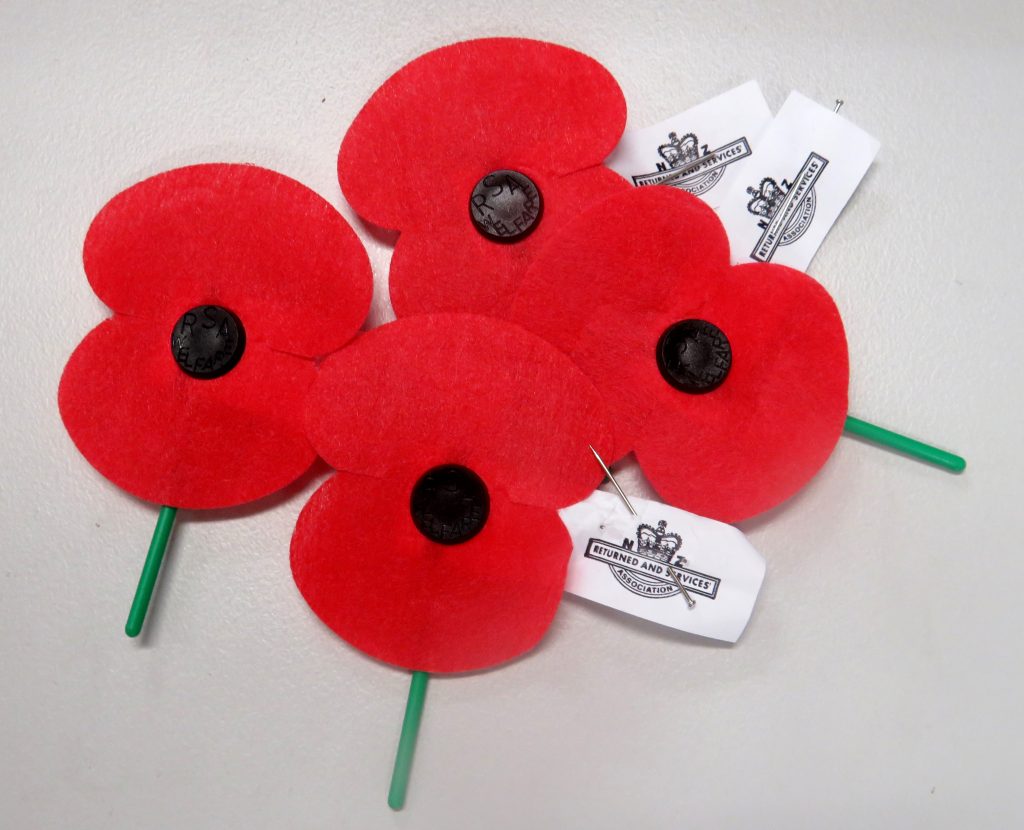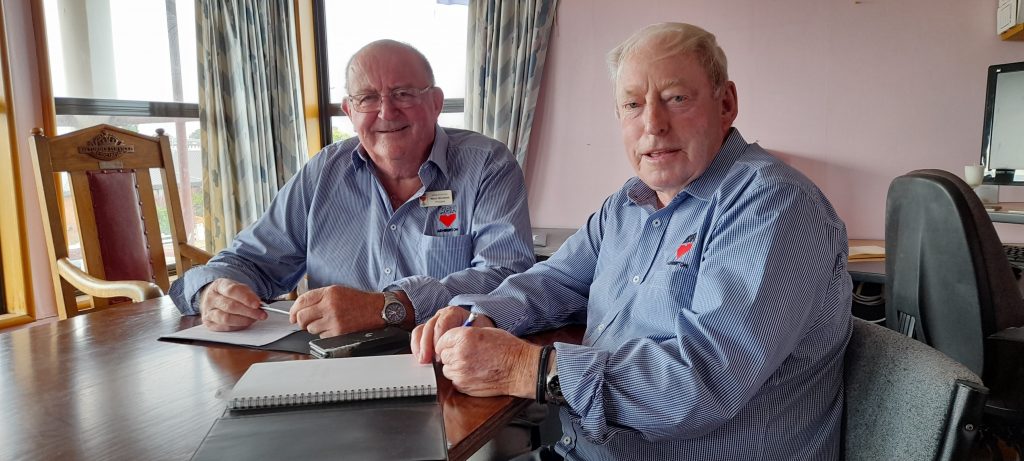
Rugby legend Sir Wayne ‘Buck’ Shelford is president of the New Zealand Returned and Services Association and was in Ashburton recently to visit the Ashburton RSA.
The Courier’s Dellwyn Moylan went along to find out about his role, and family ties.
Former All Black legend Sir Wayne (Buck) Shelford took on the leadership of the New Zealand Returned and Services Association (RSA) as its president in October last year.
He is a former petty officer with the Royal New Zealand Navy and served from 1975 to 1986 as a physical training instructor.
Like many who join the Defence Force, Wayne was prepared to go to war if he was called on but said ‘‘I was lucky that I was non operational during my time.’’
He is best known for his time as captain of the All Blacks but during his time in the navy he also played rugby for them.
Serving their country is something of a tradition for Wayne’s family. His great, great grandfather served with the British Army in the Taranaki war and Wayne’s son was a chef with the navy for 10 years, before he went with the army to Afghanistan.
‘‘He experienced a few things over there that he didn’t like and it left him a little different and we had to get him sorted.
‘‘He doesn’t show too many scars of that today but he got help.’’
However despite the RSA offering help to former veterans with a range of welfare services, the help did not come through the RSA.
‘‘Like many of the current airmen, soldiers and sailors, they don’t know much about the RSA and think it’s a drinking hole,’’ Wayne said.
He recently lead a positive meeting of area executive members at the Ashburton RSA.

Merv Brenton, Ashburton RSA president, said ‘‘it is very refreshing to have Buck as (national) president with new ideas, vision and passion.’’
The RSA might be 107 years old but Wayne said ‘‘it remains as relevant today as it has always been.’’
‘‘Many people don’t understand that when you sign up (for service) you will be sent to war at some stage in your career.’’
New Zealand has been involved in wars for 180 years from the Maori Land wars and the Boer War.
The RSA are about ensuring people never forget those who have served. It’s an organisation steeped in history and as well as standing for the Returned and Services Association, RSA also stands for the core reason the association exists ‘remembrance, support and advocacy’.
It is a service for all those who have served regardless of the war, campaign or deployments they have been a part of, as well as to support veterans families.
Supporting the families of those currently in the Defence Force while their loved one is serving is important as it can be tough having a family member serving.
Wayne said from 2024 the poppy, used as a nationwide symbol of Anzac Day remembrance, is going green – biodegradable green.

It was decided the poppy should be biodegradable so ‘‘if parts like the stalk fall off they will decompose.’’
He said they are currently made in Christchurch but the machinery is becoming old.
With the change of the poppy to green they will be made off shore. It was decided the poppy should be biodegradable so ‘‘if parts like the stalk fall off they will decompose.’’
Locally and nationally the RSA would like to see younger serving and former service people joining up.
Wayne’s own son isn’t a member, when he asked him why, his son said ‘‘it was for old men.’’
It’s a common perception, but unwarranted.
As a way to support those who are currently serving, and ensure they are aware of what the RSA offers, the national association is setting up offices on defence force camps and bases.
They are there to support the work of the New Zealand Defence Force but are best known for remembrance events such as Poppy Day, Anzac commemorations and Armistice services.
These commemoration events are an important part of the RSA and sit alongside the support and advocacy work they do.
The support they offer is mainly in the area of welfare and is a way of acknowledging what the service people have done for their country.
The money raised from the annual Poppy Day Appeal is used for welfare work.

The RSA also provides a voice to government and advocates on behalf of its members.
There are currently 104 RSA’s nationwide.
‘‘Many are outstanding and are very well run, with a vision for the future,’’ Wayne said.
They ‘‘need good boards, to stay relevant; adapt or die. To ensure that the RSA has a future, as they are asset rich and cash poor, warrant of fitness (checks) are being introduced.’’
The warrant will look at staffing, ensure current hospitality practices are being meet, that paperwork is in order and buildings are being well maintained.
Many RSA have hospitality venues as part of their operations and these need to keep up with regulations, current trends and be trading well to be off benefit to the RSA and stay afloat.
Currently 65 per cent of the RSA national membership are civilians. The Ashburton RSA membership remains reasonably stable, but like all RSA would like to have more younger veterans join.
They encourage those currently serving to join them especially when the leave the Defence Force so if they need help the RSA through Veteran Affairs can get them quick assistance if needed.
The Ashburton RSA will this year hold three services in Ashburton; two services at the cenotaph and the return of its cemetery service.



